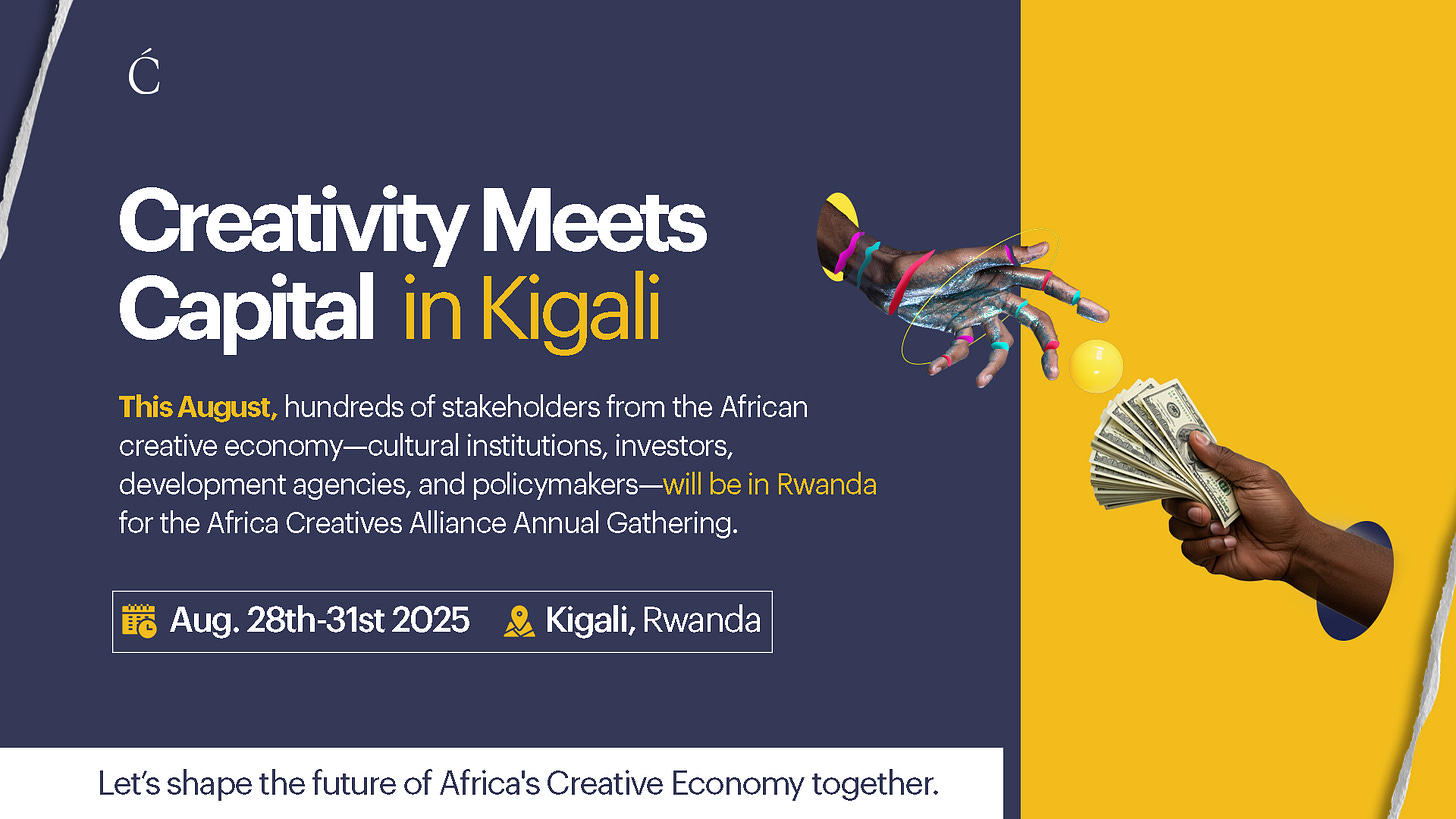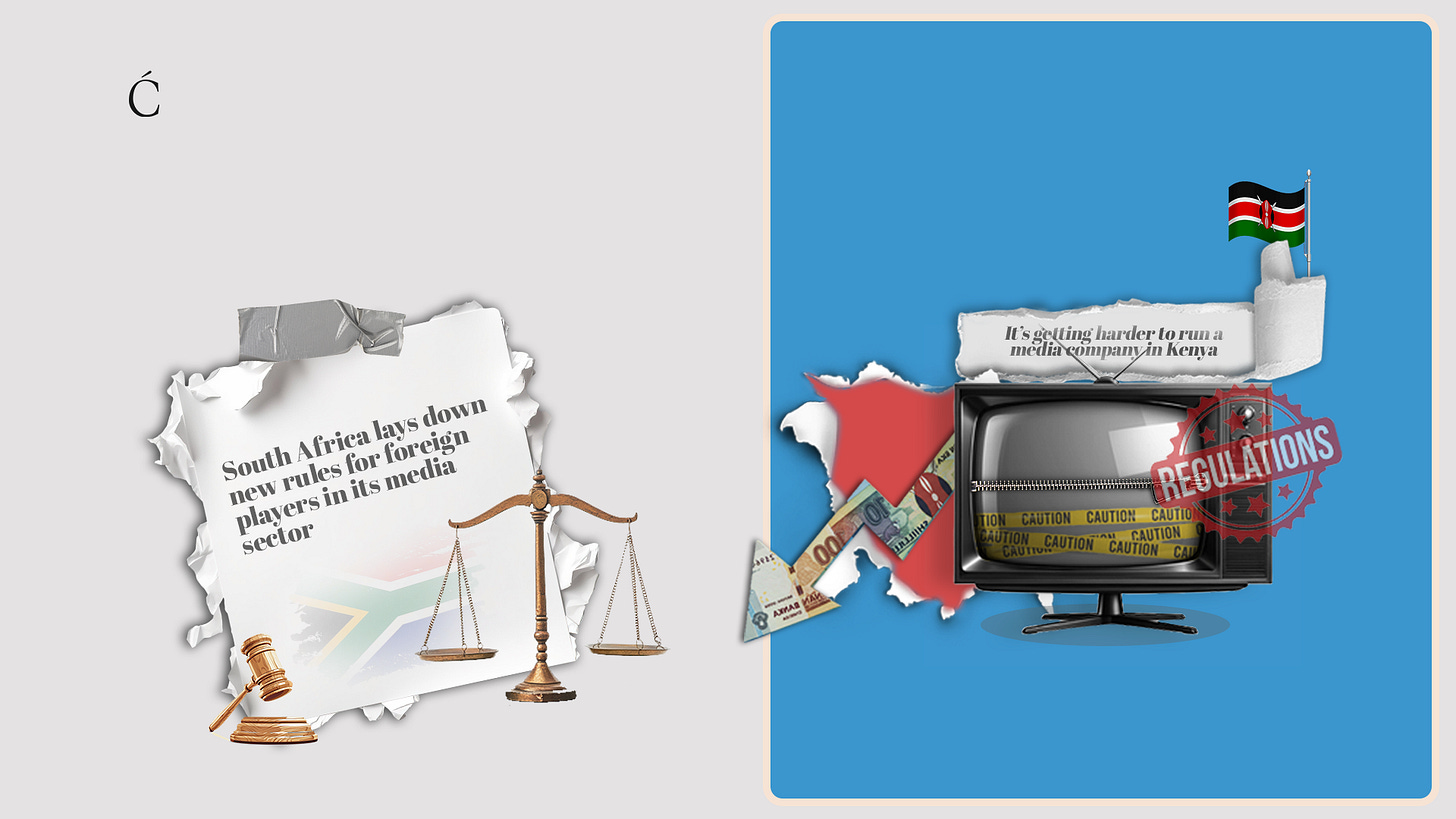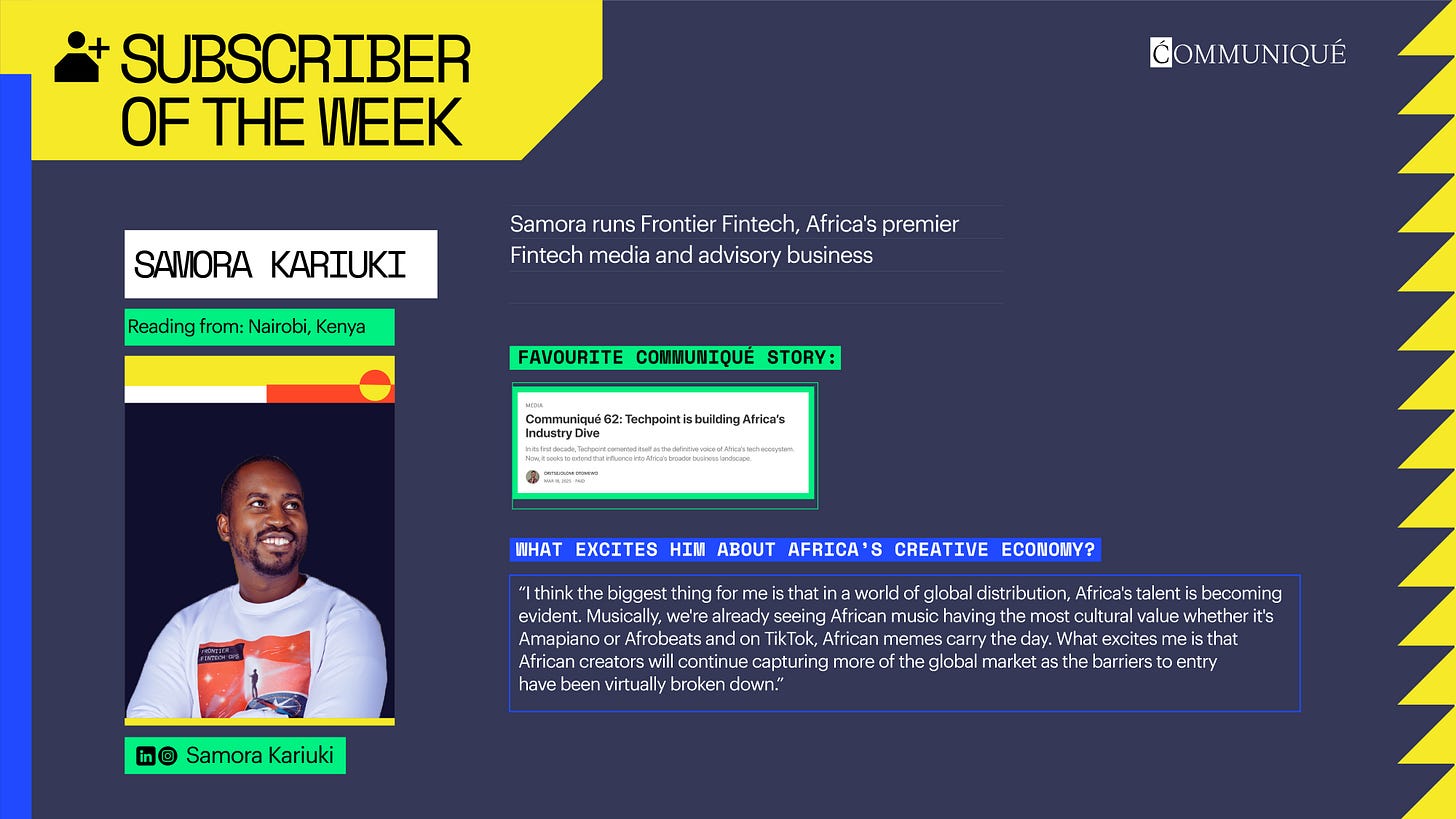South Africa wants global streamers to pay up + Kenya’s media houses keep bleeding out
We examine the regulatory shakeup affecting global media platforms in South Africa and the increasing pressures that are pushing Kenya’s media industry to the brink.
Presented by Africa Creatives Alliance
Hello there!
This week’s Digest is all about what it takes to build a media ecosystem that actually works for all the stakeholders involved, and what ensues when that doesn’t happen.
Today, we discuss
The consequences of South Africa’s new media laws for foreign players
How Kenya’s media industry is unravelling under economic and political pressure
Centre Spread 🗞️
South Africa lays down new rules for foreign players in its media sector
After years of delays, South Africa’s Department of Communications and Digital Technologies (DCDT) published the final white paper of its proposed policy framework to modernise the country’s media laws. The framework, rolled out in three phases, aims to expand regulatory oversight beyond traditional broadcasters to include online and streaming platforms and set the ground rules for foreign players in the sector.
One of the most notable proposals is the requirement that global platforms like Netflix either meet local content quotas or contribute financially to a South African content fund. Until now, these platforms operated in the country without official obligations to support the local media and creative industries, unlike traditional broadcasting players such as SABC or e.tv.
The benefits of this move are enormous, but so are the risks. This change could create new funding streams for South African filmmakers, studios, and animators, potentially unlocking opportunities without relying solely on government grants. However, if these platforms see less economic value in complying, they might reduce operations or withdraw. This is especially important as global streamers have recently started pulling back on their investments in the continent.
Another significant shift is in foreign ownership rules. The white paper proposes raising the limit on foreign investment in media companies from 20% to 49%. "Government wants to ensure that there is an enabling policy environment for increased foreign direct investment, as a stimulus to the growth and development of the ICT sector as a whole,” the paper read.
South Africa is effectively telling global platforms: if you profit from our audiences, you must also invest in our stories. It’s a bold move that could reshape its media landscape for better or worse. We will be watching closely to see how it plays.
The first phase of implementation is already underway. The Independent Communications Authority of South Africa (ICASA) is expected to propose global best-practice frameworks over the next six to twelve months. The full rollout is expected by the end of 2027.
It’s getting harder to run a media company in Kenya
Running a media company is never easy, but it’s getting even harder in Kenya. The country's media industry is squeezed from all sides by dwindling revenues, digital disruption, and rising government hostility. The latest evidence of this: Mediamax Network Limited, owners of K24 TV and People Daily, is set to lay off an undisclosed number of employees, its sixth round of job cuts in just four years.
According to TechCabal, Mediamax CEO Ken Ngaruiya said in an internal memo that the challenging macroeconomic climate, declining sales, and accelerating digital disruption has forced the company to reassess its business operations. He also cited delayed payments from national and county governments, the state’s move to single-source one media house for official advertising, and new restrictions on gambling-related ads as major blows to their revenue streams.
These issues are not isolated. Kenya’s media crisis has been brewing for a long time. Nearly 500 journalists and media workers have lost their jobs across Kenya’s top media houses in the past two years alone. In 2024, two of the three top media houses, Nation Media Group and Standard Group, laid off 16 and over 300 employees, respectively, as part of efforts to cut costs and realign their business models.
These job cuts come amid rising concerns about press freedom in Kenya, where media bans and political interference are becoming more common. Newsrooms now face the dual challenge of shrinking financial lifelines and tightening editorial space. Unfortunately, this is happening when the country needs strong, independent journalism the most.
Crunch Time 📈
Local Dominance in South Africa’s streaming market
Catch Up 📬
Sporty Group’s plan to conquer live sport distribution in Africa
With the success of its Sportybet business, Sporty Group is working hard at nailing another thing: live sport distribution in Africa. Its subsidiary, Sporty TV, has quietly become the continent’s new home of live sport across the globe, including the English Premier League, La Liga, Bundesliga, the Olympics, the Euros, and even the just-concluded Club World Cup.
The latest Communiqué essay breaks down Sporty TV’s strategy and its bet that opening up access to premium sports content in Africa, a region historically shut out by exclusionary systems, could be a game-changing move and a big business win.
Communiqué’s Subscriber of the Week 🤩
Curiosity Cabinet 🗄️
A self-funded Nigerian startup quietly positions itself as a serious rival to Selar. In just two years, it has paid over ₦500 million to local creators
The uneven economics of the benefits of Nigeria's Detty December. A short snippet for you: “In its current form, Detty December may be viewed as economic waste, not because it fails to generate revenue, but because it represents inefficiency and wasted potential.”
As we predicted last week, MultiChoice Group CEO Calvo Mawela confirmed that the company is planning a wholesale overhaul of DStv offerings.
Nigerian fashion brand Dye Lab is hacking global retail through direct customer engagement via its pop-up stores.
An inside look at the daily grind and joy of managing a literary enterprise in Egypt’s capital.
The British Council is inviting young African creatives, aspiring entrepreneurs, and early-stage founders in the creative industries to apply for its SoCreative Africa learning programme.
Here are the upcoming events in Africa’s creative economy:
The Carthage International Festival starts on 19 July and runs through 21 August in Tunis.
Simon Mabhunu Sabela Awards, honouring South Africa’s first Black film director, will be held on 19 July in Durban. These awards spotlight talent in KwaZulu-Natal’s film and television sector.
See what else is happening across the continent via Communiqué’s African Creative Economy Database.
That’s it for this week’s Digest. See you next week.






